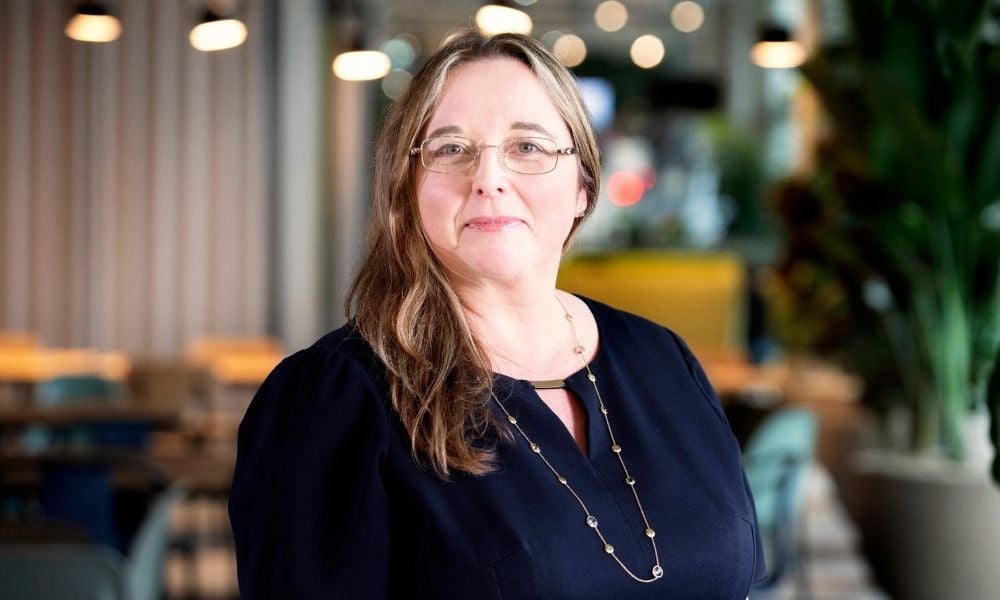
Showing vulnerability and leading with compassion is how financial giant made it through the pandemic

Psychological wellbeing was always important - the pandemic proved it’s actually essential. That’s according to Ruth McGill, chief human resources officer at ING Bank. With over 57,000 employees across over 40 countries, McGill’s response to the COVID lockdowns had to be quick, clear, and decisive – with metal health becoming an increasingly important focus.
“Mental health has always been a priority for us,” she told HRD. “COVID-19 just made it even more so. How we approached the wellbeing of our people depended very much on which region they were in. For instance, in the Netherlands, key issues were around ergonomic workplaces and setting people up for home working. In other markets, Australia for instance, we found that home-schooling and caretaking responsibilities were key.”
Read more: How can I trial a four-day work week?
As the CHRO of ING Bank, McGill is no stranger to working across multiple time zones. When the pandemic first hit, her main priority was looking at how to shift their already thriving, in-person culture, to a remote setting. Something which took a lot of planning and innovation.
“From mid-March 2020, 80% of our people were working from home,” she told HRD. “As such, everything from getting the right IT infrastructure to investing in virtual learning programs to focusing on wellbeing had to shift remotely. Frankly, it was a really radical change – one which tested our resilience. However, we also saw some benefits emerge from the disruption. Wellbeing, in particular, came to the fore. Working from home blurs the lines between personal and professional lives, it breaches boundaries with the risk of creating digital exhaustion. There are challenges around social connectivity, which is an important part of building a building an organization and from an engagement point of view.”
From 15-minute ab training to Tai Chi and yoga classes, ING Bank was quick to roll out comprehensive remote perks to WFH teams. However, as McGill told us, it’s all well and good ensuring employees are physically fit, it’s looking after their psychological wellbeing that’s the tricky part.
“One of the key things for us right now is looking at how to normalize talking about mental health and personal challenges,” added McGill. “This is something we're very much focused on in terms of our leaders. We want our leaders to show their vulnerability – that’s so important in encouraging people to speak up and ask for help when it's needed. After all, some of the most confident and resilient people, when tested with something as impactful as the pandemic, have found it hard. Remember, your employees have lost loved ones. People have struggled with home-schooling or had family members lose jobs.”
McGill knows all too well the challenges the pandemic brought – having suffered through some health issues in her immediate family.
“It's just about normalizing everything, enabling employees to share and encouraging managers to have that dialogue. One of the positive benefits of COVID was that we all got a glimpse into each other’s lives. When I meet with our CEO, I see his dog in the background. It’s the small things that bring us all together – even in remote work.”
Read more: McDonald's director of people strategy on thriving in a pandemic
Empathy and compassionate leadership really were the saving graces of 2021. And while employees are craving empathetic CEOs, it seems some executives are still hesitant to show any emotion. A survey from Businessolver’s State of Workplace Empathy study found that 68% of CEOs worry that they’ll be less respected if they show compassion or empathy in the workplace. What’s more, seven in ten HR leaders also admitted they have a hard time demonstrating empathy. While it may seem out of character for some, remember, practitioners that lack these skills are leading their organization down a route of mass resignation, high turnover, and low morale. So, if you think you’re having a hard time showing compassion, it’s essential you start practicing. For McGill, beginning her role as CHRO just two months before the pandemic hit, she revealed that open conversations and compassionate talks really helped both her and her team make it through.
“What helped me is, and it sounds really simple, just taking the time to reflect and share how you're feeling. Talking through the challenges with people you trust. That was key for me - not bottling up, not being afraid to show vulnerability.”
In showing vulnerability as a leader, you actually encourage your people to do the same. A lot of companies tout the idea of being ‘authentic’ but without putting that into practice it’s meaningless. For McGill, she built comradery with her team through discovering each other’s more ‘eclectic’ hobbies.
“I got into home baking and preserving - to the extreme,” she told HRD. “In fact, when I was going for virtual walks with my team, the joke was I'd always be passing off my jam to them – or going on about some experimental new recipe I’d found. It’s all about making time for really that personal connection – and maintaining it even when you head back into the office.”